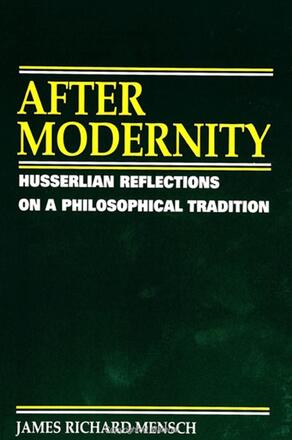
After Modernity
Husserlian Reflections on a Philosophical Tradition
Alternative formats available from:
Offers an alternative to the modern foundationalist paradigm, based in Husserl's analysis of temporality, that shows how the passing of modernity provides an opening for doing metaphysics in a new nonfoundationalist manner.
Description
This book provides an important new answer to the much-discussed question of the nature and possibility of philosophy following the collapse of the modern foundationalist paradigm. Mensch offers an alternative based in phenomenology. Using Husserl's analysis of temporality to reinvigorate Aristotle's account of time, he shows how the passing of modernity is actually an opening for doing metaphysics in a new nonfoundationalist manner. Positioning Husserl within a wider context, Mensch views him both as a culmination of the modern foundationalist paradigm and as providing a way to overcome it through his descriptive analyses.
James Richard Mensch is Associate Professor of Philosophy at Saint Francis Xavier University. He is the author of Intersubjectivity and Transcendental Idealism, also published by SUNY Press; The Beginning of the Gospel of St. John: Philosophical Perspectives; and The Question of Being in Husserl's Logical Investigations.
Reviews
"Mensch develops rigorous phenomenological analyses in a style which makes even the most obscure concepts accessible, and does so straightforwardly, without engaging in endless qualifications or elaborations of jargon. The account of Husserl's view of time—a notoriously difficult and obscure topic which is very much at the heart of his thesis—is especially well done. I know of nothing on the topic that is this clear. There are many things to admire in this rich text. "—Steven G. Crowell, Rice University
"The author takes up an interesting and important problem regarding the nature of self and its relation to time and treats it in a very interesting way. I like the way he has situated the problem in the interplay between the modern and the pre-modern, on one hand, and the modern and the post-modern, on the other. Use of major historical authors to frame his perspective and the development of his own position is interesting and fruitful. "—John J. Drummond, Mount Saint Mary's College